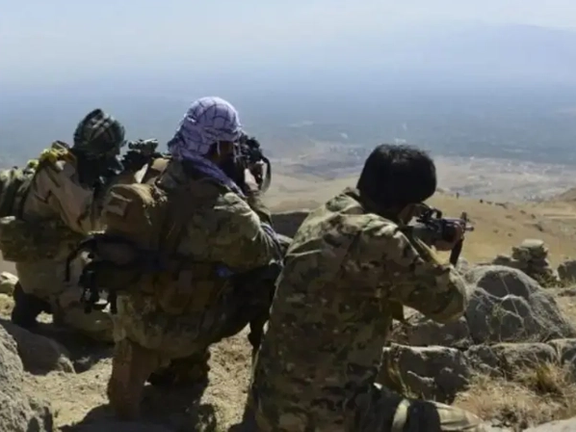One participant in this meeting emphasised that they insisted that the Taliban "do not believe in dialogue”.
Faraidoon Elham, former deputy director of Administrative Office of President, present at the session, told Afghanistan International on a call, that civil activists who met with Decker in Istanbul explicitly stated that the Taliban had shown over the past two and a half years that they do not believe in dialogue.
Elham added that the last Doha meeting indicated the Taliban's fear of even encountering four Afghan civil activists.
Referring to the establishment of thousands of religious madrassas under Taliban control in Afghanistan, he stated that these centres would become a "cancerous seed" not only for the Afghan people, but for the entire world. According to him, the religious fundamentalism promoted by the Taliban poses a serious threat to the security of the region, Europe, and the United States.
Elham had said that the world must work together to establish an "inclusive government" in Afghanistan, and the political system in the country must change.
Farzana Ebrahimi, another civil activist present at the meeting with Karen Decker in Istanbul, has sent the complete text of her speech to Afghanistan International. Her speech does not indicate any support for "engagement with the Taliban”, She did not consider war and violence as a solution for Afghanistan and stated that a political solution should be sought to overcome the crisis.
This civil activist emphasised on the formation of a framework to provide the groundwork for the establishment of a popular government consisting of all ethnic groups.
In her speech, Ebrahimi mentioned that people, especially vulnerable communities like the Hazaras, women, and former government officials, are currently enduring widespread physical and mental insecurity.
She stated that despite claims about ensuring security and fighting terrorism, Hazara and Shia communities in Afghanistan are experiencing violent incidents that explicitly qualify as "genocide" and "crimes against humanity”.
She stressed that Afghanistan is experiencing a deep, multi-faceted, and complex crisis for which the Taliban is responsible.
Ali Folladwand, an Afghan physician in Istanbul, also provided the text of his speech to Afghanistan International, in which there is no visible expression of support for engagement with the Taliban.
In his speech, it has been mentioned that the "highly centralised and exclusive structure and destructive narrative dominated by power in Afghanistan" is the fundamental problem in the country. According to him, the power narrative in Afghanistan is based on "expulsion, monopolising the power and opportunities in the hands of one ethnic group, and expelling other ethnicities residing in this country”.
He stated that Afghanistan's history shows that "until this fundamental problem is resolved, Afghanistan will not be a peaceful and progressing country”.
In this civil activist's speech, it has been stated that the Taliban's rule has made the situation challenging for everyone in the country except for their own group. According to Folladwand, "religious and ethnic minorities such as Hazaras, Panjshiris, Uzbeks, Sikhs, and Sufis are under intense pressure”.
As an example, he criticised the complete removal of Hazaras from political power by the Taliban, stating that the Taliban seeks to "completely eradicate Hazaras from the political arena”. He also criticised the occupation of land and homes of Hazara people by Taliban commanders.
In this speech, it has been stated that US aid to Afghanistan under Taliban control should not be unconditional.
Karen Decker, Charge d’Affaires of the US embassy for Afghanistan, disclosed on March 8 the specifics of her meeting with Afghan activists in Istanbul. She shared on the X social media platform: "Lots of talent and energy here ready to support a political roadmap and engagement with the Taliban." This note was followed with widespread criticism on social media.
In reaction to Decker’s remarks, Michael McCaul, US Congressman, expressed his disagreement, stating, any engagement with the Taliban is a slap to the face of Afghan people.

